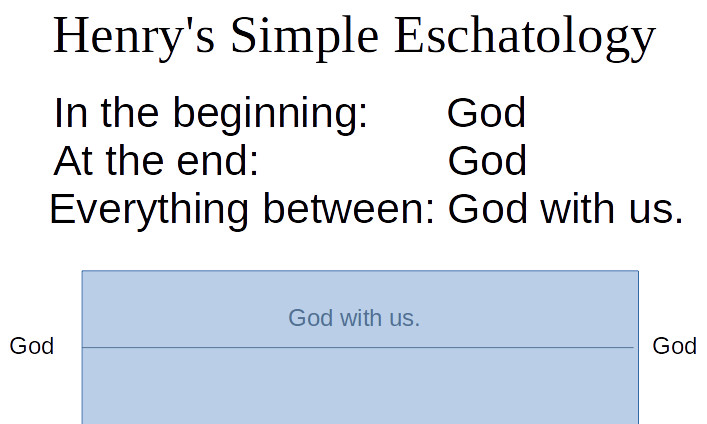Scot McKnight: Is Low Church Evangelicalism Protestant?
I find this an interesting question. But before I comment, let me summarize and quote Scot McKnight’s article.
He first notes that from the early liturgies to the Westminster Confession there is a certain common pattern in worship, one which is dropped by what he calls “low church evangelicalism.” Amongst the elements he includes the multiple scripture readings (Psalm, OT, Epistle, Gospel) that would be familiar to those who follow the lectionary, sharing of the word, and some sort of conclusion, such as the creed.
He concludes:
… Low church evangelicalism is too often theologically shallow, frequently chaotic in its order of worship, nearly always lopsided in which parts of the Bible it preaches and teaches and knows, and inexcusably ignorant when it comes to the history of God’s people called the Church. These are marks that it has wandered from the gift of the Reformation. These are marks of groups that are not Protestant.
Having come from a rather low church background, and then having experience even lower liturgy in charismatic circles, I come at this from the opposite end. My wife was raised Catholic, and I as a Seventh-day Adventist. We came together in a United Methodist congregation with a distinctly charismatic tilt. I tend to find much more value in the form of the liturgy, and particularly in the scripture readings. I’m disappointed that we do not read four full scriptures.
The general complaint I hear in charismatic and other low church circles is that high church worship is just dead ritual. From my high church friends I hear that low church worship is shallow, and so are very many of the worshipers.
There is some truth in both accusations. In many cases I have found that charismatic believers will not meet without the expectation of some manifestation of the presence of the Spirit, i.e. without an emotion-engaging spiritual experience. They will forgo any other element of worship in order to get there. So often a worship service can consist entirely of singing, with the expectation that there will be people around the altar or whatever one calls the area at the front of the church weeping, on the floor, or in some other way making it known that the Spirit is there.
High church folks quite often don’t want to be interrupted in their liturgy by anything, and often I think this includes being interrupted by the Spirit. While they are likely to refer to the emotional manifestations as the kind of thing they wish to avoid, they may also wish to avoid discussion or testimony, or just about anything that makes the message current.
Now both of my last two paragraphs paint an extreme, and I can point to any number of exceptions. For example, the ICON worship service at First United Methodist Church which I attend has the historical order of worship, but is quite lively. I feel the presence of God there each and every week. I would be delighted to hear more scripture read, but we do get three of the four scriptures worked into the service. I also know any number of free-wheeling charismatics who are quite serious about studying their Bibles.
My hope would be to find a balance that connects us to history, roots us in scripture, and challenges us to Christian living all in one.
Having said all of that, I really don’t know the answer to Dr. McKnight’s question. First, I have always used the term “protestant” for any movement that grew out of the protestant reformation, even though I’m aware that some groups and streams are very different. Second, I’m not sure what specifically the title “protestant” should prove. I have avoided calling myself “evangelical” because I’m not all that sure what it means and how precisely it differs from simply being “Christian.”
One note I would add is this: Was liturgy a defining element of the protestant reformation? Is it not possible that the reformers stuck with the basic liturgy not because it was defining, but because it was not–it was simply an element of their tradition that they didn’t see any immediate need to reform. If that is the case, I would have a hard time seeing how the word “protestant” should be defined in part by liturgy.

Hi – great blog you have here. I love reading sites about religion – they are so educational. Thank you for having this one. The internet can be a real blessing, even though some people don’t realize that and use it badly. I am always interested in reading online about spiritual thoughts and beliefs and this site is very thought-provoking. I don’t have time to read all of the articles here right now, I found this site when looking for something else on Google, but I’ve bookmarked your homepage and will visit again soon to see the latest updates. What is your preferred translation of the Bible? I think they are all good, don’t really have a preferred one myself. I have a blog with scripture and related art on it. Please bookmark it – it as at http://www.GotTB.com. Have a fun week. God’s Peace!